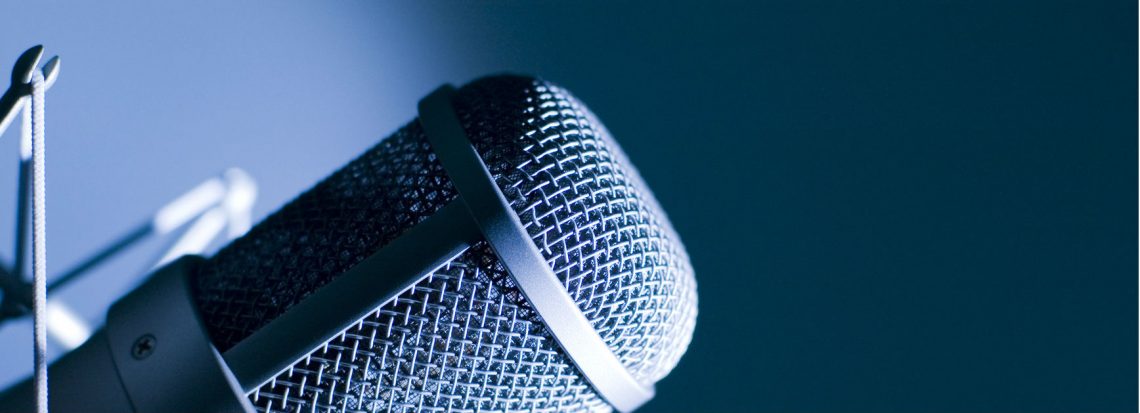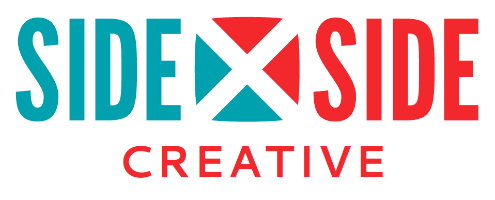
Should you start a podcast?
Podcasting is the future of radio. For the podcast listener, podcasting is like having a fully customizable radio station on the go, wherever you are.
I listen to podcasts in the car, on walks, and when I cook. And what I’m listening to is fully customizable to my tastes: business, books, movies, history, travel, technology, current events, and more. Browse through my list of podcast subscriptions, and you’ll get a very good sense of who I am and what I care about.
For the podcast creator, however, podcasting can feel daunting. How do you record shows? What do you talk about? Who listens? How do you actually go about setting up a podcast? For those who are wondering about these questions (and more!), here’s a useful guide that will hopefully help you decide whether you should start your own podcast.
What is a podcast?
Let’s start with the basics. At a technical level, a podcast is an audio file that listeners can stream or download over the Internet, with the option to “subscribe.”
Here are two examples:
The Miss Fisher Philes (a podcast about the Australian TV show Miss Fisher’s Murder Mysteries, and co-hosted by Side x Side’s founder Mary Holste)
MovetoTacoma.com (a podcast about Tacoma, by Side x Side friend and frequent collaborator Marguerite Giguere)
How do people listen to podcasts?
Originally, the name podcast came from the idea that you could broadcast to an iPod. Of course, not many people use iPods anymore, but the name stuck.
Now, most people listen to podcasts from their smartphones. If you have an iPhone, a podcast app is already on your phone, but there are third-party iPhone apps that can play podcasts as well. Android phones also have apps you can download. Many podcasts, but not necessarily all, also have a way for you to listen to the show online.
Ok, I get what a podcast is. What are the benefits to hosting a podcast?
Here are the biggest benefits to podcasting:
Listeners spend hours with you—video on the Internet has to be very short to get someone to watch it. But podcasts can run several minutes to more than an hour (in fact, I listen to at least one podcast that is routinely longer than two hours). Think about what that means. If you have a half hour podcast that airs twice a month, by the end of the year, a listener will have listened to you for twelve hours. When was the last time anyone gave you twelve hours of their time? The trust you can build is huge.
Listeners can do other things while listening to you—video is great, no question. But people have to actually watch it. Podcasts allow you to reach people while they are running, walking, driving, raking leaves, or doing dishes. It’s hard to reach those people with video.
Podcasts build relationships—The chance to build a relationship with guests is very strong, in addition to the relationship with listeners. Podcasting allows you to reach out to people you otherwise might not have interacted with. If you (let’s say) start a podcast about your local community, you have a platform to reach out to people you want to know to ask them to tell their story. Want to get to know the mayor of your town? Invite him or her onto your podcast.
Podcasts don’t rely on other companies—Unlike building an audience on Facebook, Twitter, or YouTube, podcasts don’t rely on another company to reach your audience. No one owns podcasting, just like no one owns email. Facebook can’t change its algorithm. YouTube can’t change their model and cut your views. You are far more in control with podcasting than you are with many other platforms.
You don’t have to be on camera—if you don’t want to create videos because you don’t like being on camera, then maybe podcasting is a good route for you.
Podcasting is fun—you get to talk and talk and people listen to what you have to say! What’s more fun than that?
What are the drawbacks of hosting a podcast?
As anything, it’s not always sunshine and roses. Here are the biggest drawbacks:
Podcasting has a limited reach versus video—In general, podcasting has a smaller (but growing) audience than video or text blog posts. Not everyone has smart phones and not everyone knows what a podcast is. Know your audience before making the leap.
Podcasting is more technical than writing a blog post—There are some hoops you will need to jump through to get a podcast set up for distribution. And recording and posting audio to the Internet is more complex than writing a blog post. Once you have it down, it’s pretty routine, but it’s good to know. (Conversely, this slight barrier to entry is one of the reasons why podcasting is so intriguing right now: there is less competition.)
Ok. Podcasts sound interesting. But how should I decide if it’s right for me to start one?
Finally. The big question. Here are some good questions to ask as you consider whether you should start a podcast:
- Is there something I care about enough that I want to talk about it regularly?
- Do I want to build trust with a community over time?
- Do I have an audience (or want to build an audience) that listens to podcasts?
- Do I want to spend the time learning the technical details of podcasting? And if not, do I want to pay someone to handle the technical details for me?
Can you answer yes to these questions? If so, you should create a podcast!
What should my podcast be about?
What does your audience care about? What do you care about? Wherever those two circles overlap is a ripe area for a podcast.
A REALTOR® who loves food and cooking, for example, might choose to podcast about all the amazing food options in their town. She could interview chefs at local restaurants, and farmers who come to the farmers market. She could interview home cooks who actually know how to use all the equipment in their fancy kitchens. She could interview home brewers and people who make their own wine. (Does this podcast exist? Because I already want to subscribe.)
The REALTOR® in this example is taking something she cares about and that her audience cares about and is using that to create compelling and authentic marketing for her business. It won’t take long for people who love food to start choosing her as their real estate agent. They will feel like they already know her, and that she knows them, long before she ever meets them.
What should the format of my podcast be?
This is going to depend on your focus to a certain extent. But you have basically three options:
You are the only voice on your podcast and just talk and talk and talk—if you have a point of view you want to get across, you might choose this option. It’s just you and a microphone. Have something to say? Say it. Using our REALTOR® example above, she could have a podcast where she talks about restaurant openings, and things happening in the world of food in her community.
You and another person “co-host” talk every episode—if there’s someone you have natural chemistry with, this could be a good option. Find someone you play off of well and your podcast will be lively and interesting. This format also benefits from having two people invested, which halves expenses but also doubles potential marketing exposure. Again, using our REALTOR® above, she could host this with another foodie. Maybe one is a vegetarian and one is a meat eater. They dine out and then share their experiences on the podcast afterward.
You interview someone new each episode—this is the best option if you want to really get out there and meet people and form new relationships. Like having a “co-host” each potential guest is another person who can share the episode with their friends. So each episode brings in another chance to get more marketing exposure with someone new. You also get to be the sole host, with all the credit that implies.
Generally speaking, I think your best podcast option is going to be interviewing someone new each episode. It creates more work: you have to find guests and such each episode. But if you are launching a podcast to build trust or for marketing, this is very compelling. Every interesting person you talk to is subtly branded with you. You will sound like you know a lot of people and that all the cool kids like you.
After that, I’d recommend finding a co-host. Two people with overlapping interests who can talk about a topic knowledgeably and with humor are going to be a lot of fun to listen to.
It would take a very unique person to be the only voice on your podcast. It’s almost like giving a lecture. Can you talk for ten minutes in a compelling way without someone responding or nodding as you go? If so, give it a try! When I’ve tried it, I can tell you that I, personally speaking, have found this format for podcasting to be very challenging.
What do I need to get started?
You need:
- A name for your show
- A description (100 words on what you’re all about)
- Podcast cover art (at least 3000 pixels x 3000 pixels)
- Audio equipment to record and edit audio files (or someone to do this for you)
- A place to host your audio files
- A place to share your episodes (Facebook, Twitter, Tumblr, etc)
That’s a pretty good basic list.
Here are some technical tutorials if you are setting up a podcast on your own:
- http://podcastanswerman.com/learn-how-to-podcast/
- http://www.smartpassiveincome.com/tutorials/start-podcast-pats-complete-step-step-podcasting-tutorial/
I will say that Side x Side Creative can help you with some of this, including concepts, cover art, and technical set-up and integration with websites. Drop me a line if you want to talk more!
Recording your first episode
You can’t set up a podcast in directories like iTunes until you have a first episode ready to go. So get that first podcast recorded! Find a guest or grab a microphone and give it a shot. If you want, use the voice recorder on your phone, just to practice. I strongly recommend better quality microphones than that, but if you are in a very quiet place, it might work in a pinch. As with all marketing, getting something 80% of the way to where you want it is better than not doing something.
Getting the word out about your podcast
You have a file, you have cover art, and you have submitted your podcast to iTunes!
Once it’s out, share it with your friends on Facebook. Put it on your Facebook business page or Twitter. Email any email subscribers about the podcast. If you have a guest, send a link to the podcast so they can share it as well. If there are businesses you mention, send it to them. This is the time to get the word out!
What next?
Now do it again. Set a schedule (at least monthly, but twice a month is even better). And then stick to it! Record two or three episodes in advance so that you have a little buffer to record.
Podcasting is great to do in batches. Record three podcasts in a row one day. Then edit them all together on another day. Then when it comes time to posting them, 95% of the work has already been done.
Any questions?
I’d be happy to answer any questions about any of this you might have. Shoot me a line and let me know what you’re thinking about!
